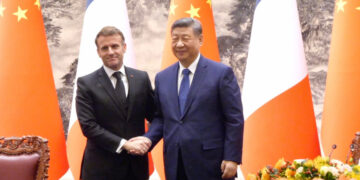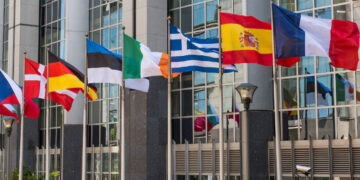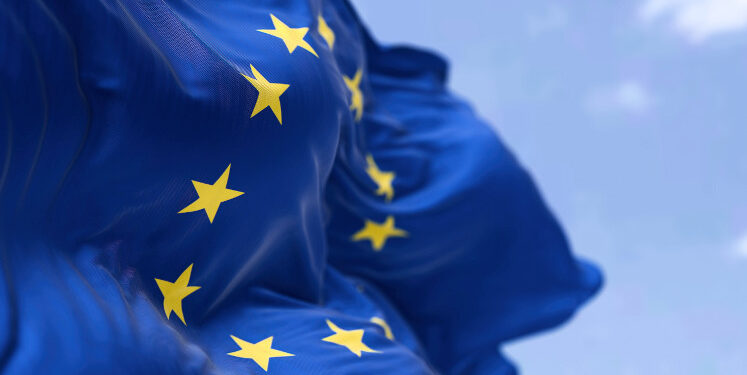EU commitments limit the space for governments to implement their own political priorities. Sergio Scandizzo argues that while these commitments often have positive effects, they have led to a deterioration in political discourse that has helped foster the rise of the populist right.
Mario Draghi’s recent report on EU competitiveness, commissioned by European Commission President Ursula von der Leyen, outlines strategies to sustain Europe’s economic growth in the face of global challenges. It suggests substantial financial commitment, with annual investments of €750-800 billion, primarily in green energy, infrastructure and technology – comparable to the historic spending seen in the Marshall Plan.
Draghi later reiterated his considerations in an article for the Financial Times where he also urged the EU to consider the example of the recent UK budget, where a substantial increase in public investment is matched by precise rules about the use of borrowing under the supervision of an independent authority. He (and the ECB) point out the need for a coordinated approach to exploit the additional (limited) flexibility afforded by new EU fiscal rules.
People may hold different views about Draghi’s analysis and recommendations, but both highlight the fact that most EU governments have limited fiscal space to pursue their political priorities, and that an extension of such space, notably through national or supranational borrowing, may only come at the cost of very strict supervision at the supranational level, most likely from the EU Commission.
The debasement of national political discourse
Economic policy is of course not the only area where national governments have limited or no room for manoeuvre. Most of them being, beside EU members, also part of NATO, their foreign policy and military options are almost by definition aligned in Brussels and in any case strongly limited by the interests and decisions of the United States.
Agriculture and food security are also largely outside national management, the former because of the centralisation of subsidies within the Common Agricultural Policy (CAP) and the latter because of the extensive regulatory activity of the European Commission. All this, make no mistake, is a very good thing. We have seen many different alternatives and they have all had very bad consequences.
However, one unintended consequence of this restriction seems to be that political discourse tends to focus on issues that are less likely to face fiscal or international constraints and which are easier to identify as either progressive or conservative (or whatever label a party chooses to send signals to its electorate).
Such issues include taxes, personal security (mainly from crime, but also safety at work and in other contexts), individual rights (like gay marriage and other minorities’ interests), ethical choices (abortion, genetic research, surrogate motherhood) and of course immigration. To be sure, all are very important issues and worthy of public debate in any democratic society. However, they are also the most divisive and, in an already deteriorated political climate, potentially the most toxic.
First, they all appear to be moral issues and, as such, tractable merely with legislation, without the annoying need for budget resources, long-term investments or structural reforms. So, the response to illegal immigration is a border-sealing decree, the solution to a drug problem is a new law on drugs and a more equitable society (or a more dynamic economy) is achieved through a reform of the tax code.
Second, while most people happily defer to experts in matters of science and technology, those same people tend to quickly adopt strong views about ethical matters. As Jonathan Haidt wrote in The Righteous Mind, “People bind themselves into political teams that share moral narratives. Once they accept a particular narrative, they become blind to alternative moral worlds.” This is at best a recipe for inefficiency and at worst lays the groundwork for conflicts and even violence.
Finally, controversial as they may be, such issues rarely decide the outcome of elections. This means that the priorities of the electorate (typically, the economy) are discussed less (or at least less substantially) and hence both government performance and claims by the opposition escape scrutiny, which ultimately weakens the democratic process.
Toxic topics and the populist right
A further consequence of the dynamics described above is that they create a very favourable environment for the rise of the populist right. This brand of conservatism is nationalistic, suspicious of differences, averse to both modernity and critical thinking, and formally devoted to the interests of an abstractly conceived “people”.
In his book, Haidt postulates that there are five “receptors” or “senses” when it comes to morality: care/harm, fairness/cheating, loyalty/betrayal, authority/subversion and sanctity/degradation. He argues that while liberals value the first two more highly, conservatives tend to value all five in a similar way.
Conservatives therefore have more ground on which to differentiate and promote their views, which is especially advantageous in periods where ethical issues seem to occupy the bulk of political discourse. In other words, the left has only two main channels to reach out to people, while the right has five.
By contrast, European communist and socialist parties in the 1960s and 1970s cultivated a strong sense of loyalty (to the working class) and of respect for authority (of the party). They even created a sense of sanctity as the future triumph of the proletariat was imbued with an almost mystical quality that had parallels with a religious paradise.
These features of the left’s identity, together with the objective of fair distribution of income and wealth and a comprehensive welfare system, have been all but replaced by concerns for the rights of narrower constituencies. This has been combined with an acceptance of market laws and capitalist logic that would have been considered nothing short of heresy a few decades ago.
The result of this ideological shift is that on the one hand it now seems impossible to differentiate the European right and left in terms of economic policy. This is both because of the few degrees of fiscal freedom left and because of the perception there is an established consensus on the superiority of the capitalist model (Margaret Thatcher’s mantra that “there is no alternative”).
On the other hand, the room for manoeuvre on the ethical side of government policy – defence of the “European way of life”, religion, culture, education, security – favours the extreme right, insofar as the other parties either dismiss or send erratic messages about most of those issues. Donald Trump’s 2024 election victory serves as a fine example of liberals digging their own political grave by leaving key moral dimensions to the extreme right.
Managing unintended consequences
If the EU wants to avoid a radical split of the kind we are witnessing in the US, it must not fall into the partisan trap of believing that policymaking is only about choosing sides.
First and foremost, there is a need to steer national political discourse back where it belongs: a unified vision for the future, a programme of economic development, a role on the international stage, all within a common European framework. Happily deferring to common European positions in matters of economics and foreign policy leaves the extreme right free to appropriate the discourse against the EU’s institutions (“those bureaucrats in Brussels”).
On the other hand, left-wing parties need to play their part by recapturing the narrative on those issues related to Heidt’s other senses (loyalty, authority and purity). They need to make the case that the integrity of our national cultures is not an exclusive domain of the far right, especially when it comes to European integration. In fact, it has long been a fundamental feature of the EU project, as opposed to the US “melting pot” model, that common institutions and policies have developed while maintaining strong national interests and viewpoints.
They furthermore need to imbue their concern for growing inequalities with the integrity and credibility that comes from knowing this represents one of the highest pursuits of humankind, and where they are in the good company of most of the world’s religions. They finally need not forget that the authority of strong institutions, laws and their enforcement are a guarantee “against” all kinds of fascism rather than a harbinger of totalitarianism.
Note: This article gives the views of the author, not the position of the European Investment Bank, EUROPP – European Politics and Policy or the London School of Economics. Featured image credit: rarrarorro / Shutterstock.com






































Discussion about this post